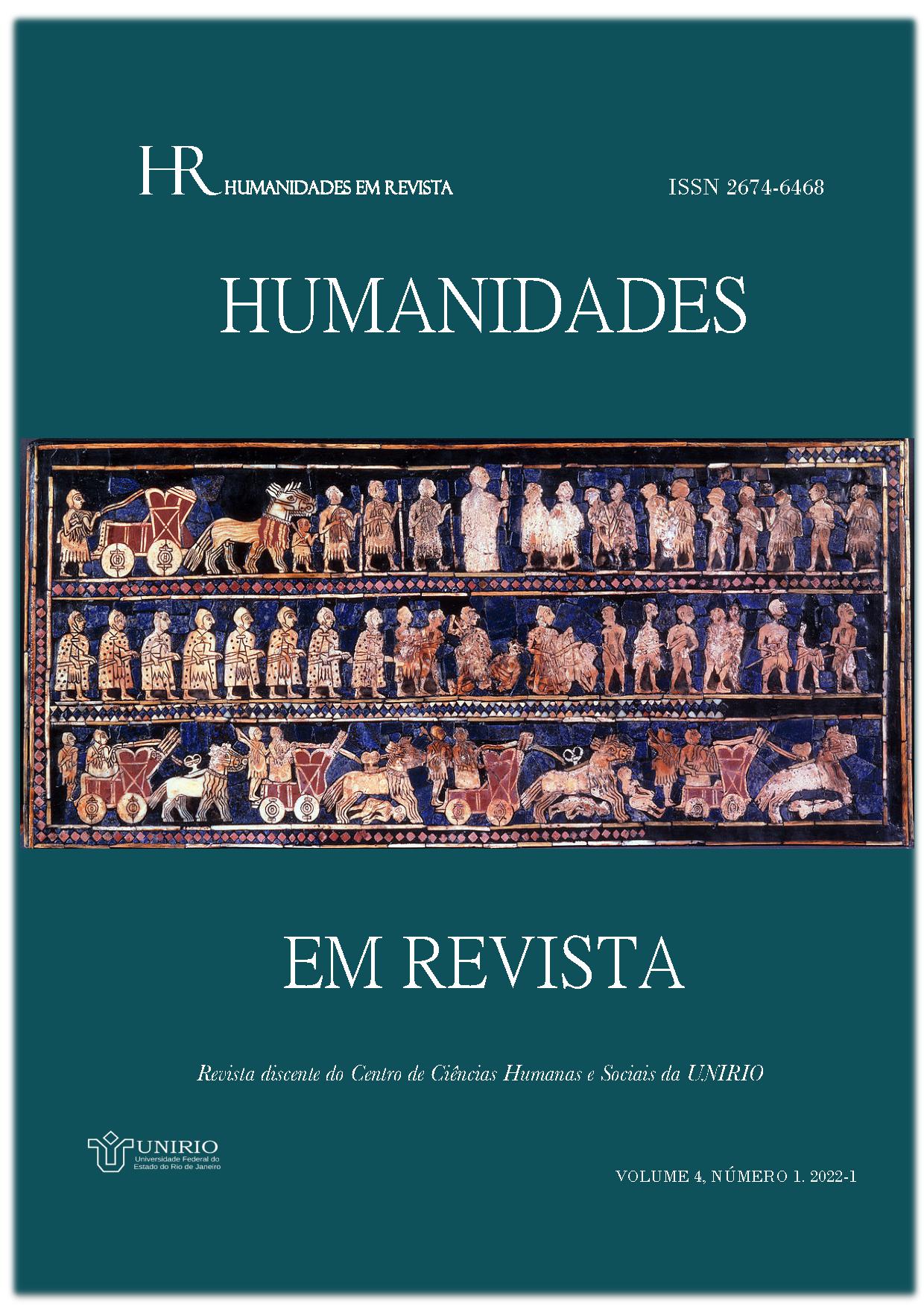OF SHEEP AND WARRIORS. THE MILITARY PROWESS AND POLITICAL SIGNIFICANCE OF PROVINCIAL ELITES IN CICERO’S LETTERS FROM CILICIA
SOBRE OVELHAS E GUERREIROS: PROEZAS MILITARES E RELEVÂNCIA POLÍTICA DAS ELITES PROVINCIAIS NAS CARTAS DE CÍCERO DA CILÍCIA
Palavras-chave:
Cícero, Cilícia, Elites provinciais.Resumo
Segundo Suetônio, Tibério disse aos governadores que sugeriam impor taxas extorsivas às províncias, que “cabe ao bom pastor tosar seu rebanho, não o esfolar” (Tib. 32.2). Tal visão paternalista estava profundamente enraizada na mentalidade dos senadores da República tardia e do principado: os provinciais eram sujeitos (quase) inofensivos a quem os governadores tinham de proteger, e não abusar. Como se sabe, Cícero partilhava dessa visão. Este artigo lidará com algumas observações sobre questões militares e elites provinciais em sua correspondência como governador da Cilícia. De fato, mesmo que Cícero apresentasse a si mesmo como um governador exemplar e propalava gozar do entusiástico apoio das comunidades da Cilícia, os provinciais têm um papel limitado em sua correspondência, cuja visão geral é muito similar à de Tibério. Especialmente no que tange a questões militares, o governador não reconhece aos provinciais uma contribuição significativa na defesa da sua província e em suas vitórias contra as tribos do Monte Amanus. Como veremos, a realidade da campanha de Cícero na Cilícia revela o papel dos provinciais e de suas elites na manutenção do controle e defesa da sua região. Possivelmente, Cícero não estava disposto a admitir que as elites locais precisavam proteger o império mediterrânico, o que levou a consequências práticas em sua posição política. As palavras de Cícero (e de Tibério) são enganosas: as lideranças provinciais eram muito mais que um rebanho de ovelhas, e e a extensão de sua real influência ainda precisa ser plenamente reconhecida
Downloads
Downloads
Publicado
Como Citar
Edição
Seção
Licença
Copyright (c) 2022 Alberto Cafaro

Este trabalho está licenciado sob uma licença Creative Commons Attribution-NonCommercial-NoDerivatives 4.0 International License.
Os direitos autorais de qualquer trabalho publicado na Revista pertencerão aos autores. Não haverá qualquer pagamento pela publicação na Revista e a aceitação dos originais implicará na aceitação das condições descritas nas informações sobre a revista constantes do escopo e de todas as regras apresentadas, assim como o respeito à legislação e às normas vigentes concernentes a publicações. A UNIRIO e seus entes subordinados não se responsabilizarão por quaisquer equívocos, questões e contendas entre autores, participantes e/ou entes institucionais que sobrevenham às publicações. O e-mail do autor será disponibilizado no trabalho.
A revista oferece acesso livre imediato ao seu conteúdo, seguindo o princípio de que disponibilizar gratuitamente o conhecimento científico ao público proporciona maior democratização mundial do conhecimento, sempre dentro dos limites da legislação de direito de autor e de direitos conexos. É adotada a licença Crative Commons do tipo “Atribuição-Não Comercial-Sem Derivações 4.0 Internacional (CC BY-NC-ND 4.0)”, acessível em: https://creativecommons.org/licenses/by-nc-nd/4.0/legalcode.pt , segundo a qual, em linhas gerais, é permitindo fazer o download dos trabalhos e o seu compartilhamento para fins educacionais, desde que sejam atribuídos os créditos a seus autores, citando também o repositório dos trabalhos, e sem que se possa alterar o material de nenhuma forma ou utilizá-lo para fins comerciais.





 Qualis/CAPES 2017- 2020 B4
Qualis/CAPES 2017- 2020 B4 Diretório das revistas científicas eletrônicas brasileiras
Diretório das revistas científicas eletrônicas brasileiras




